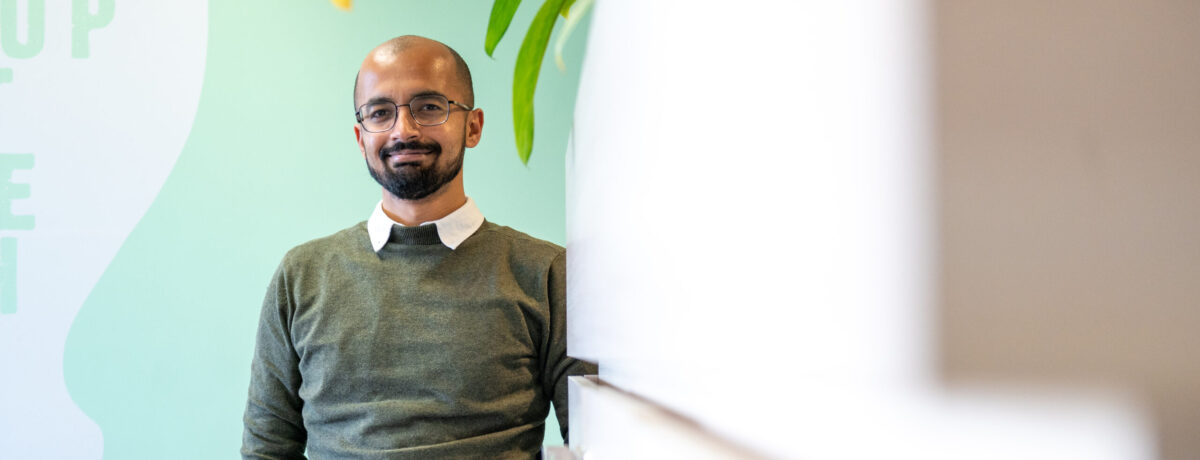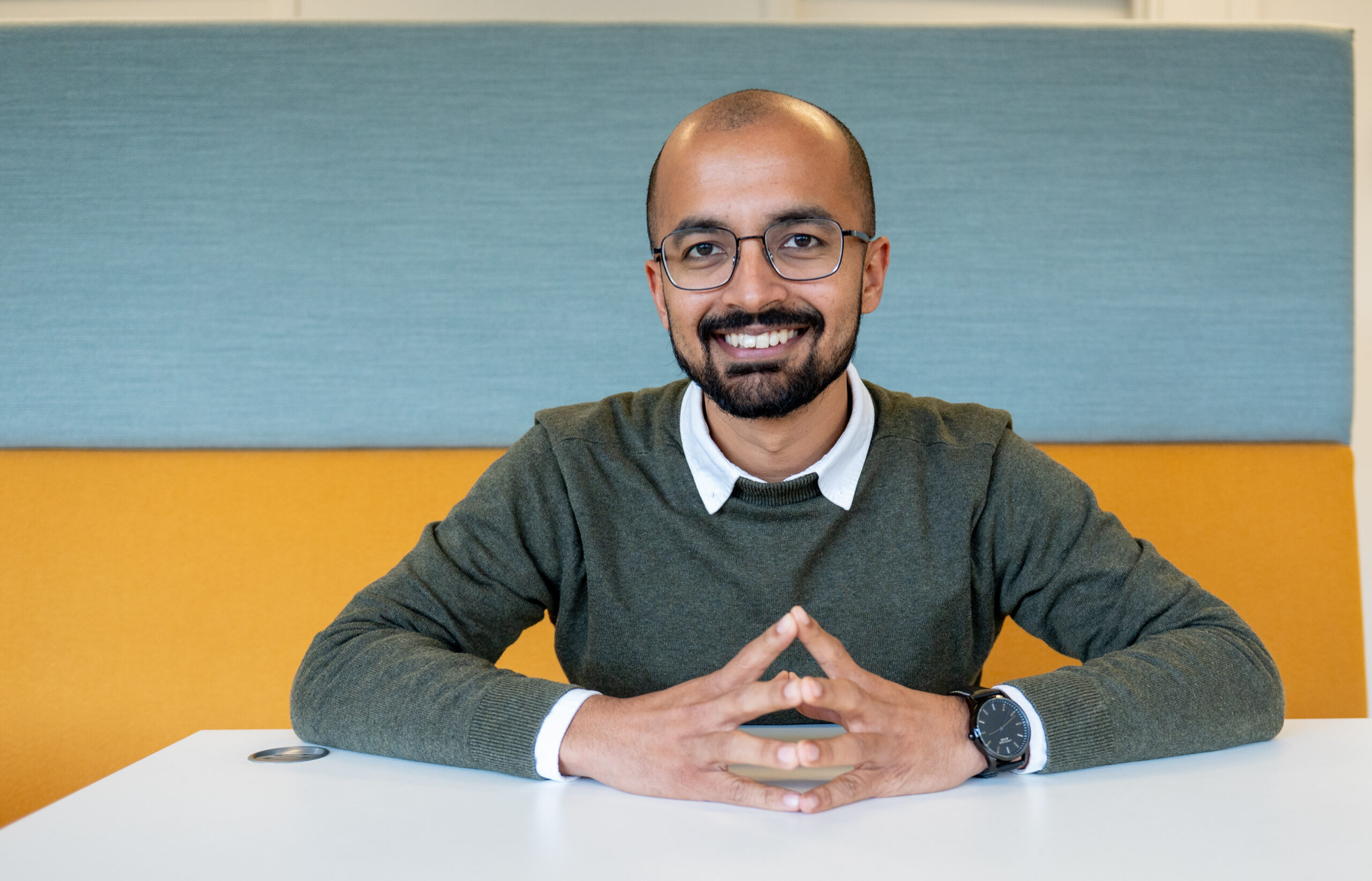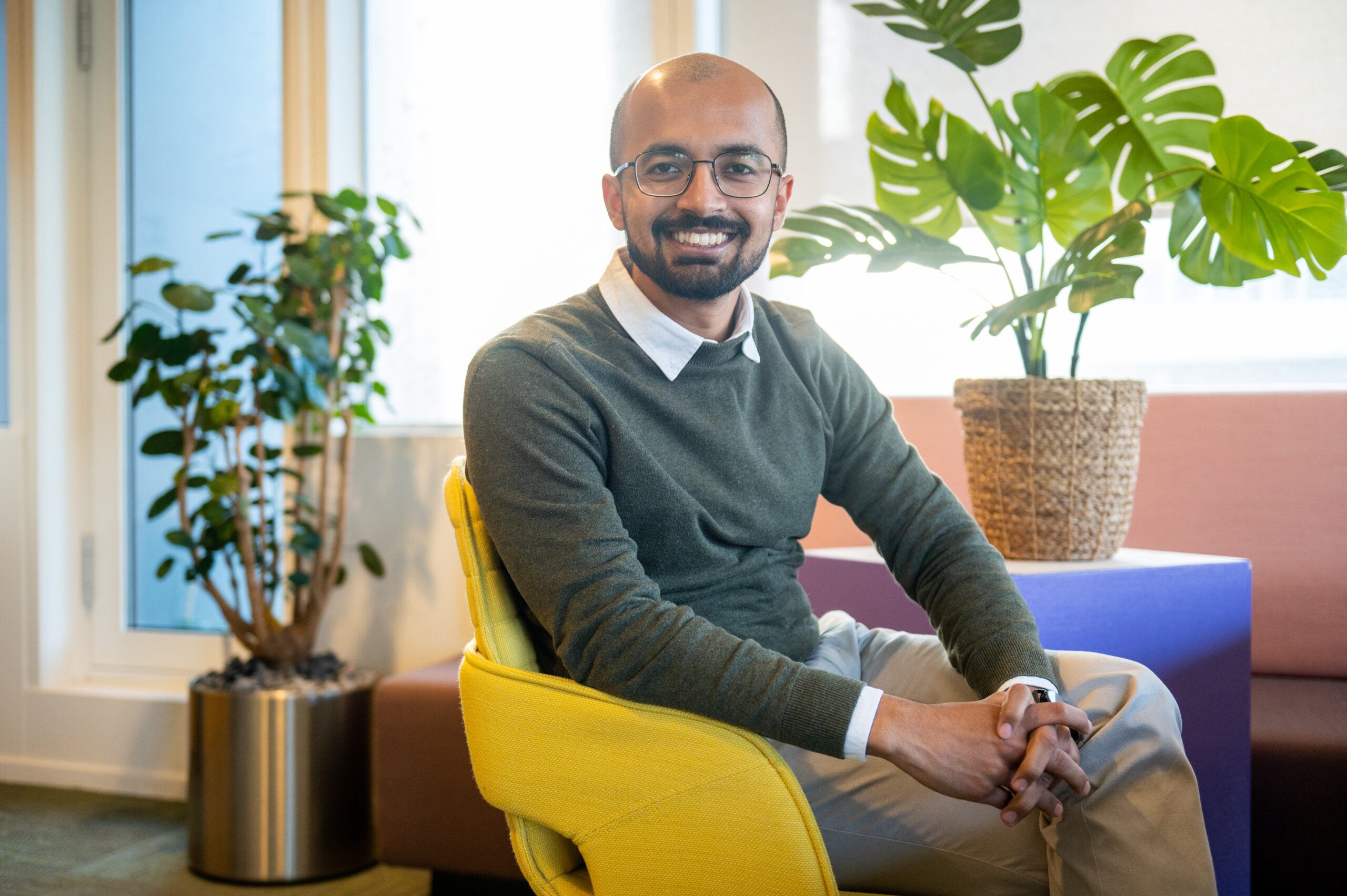Sagar
“At SURF, we try to bridge the technological gap between the research community and society at large.”

“I enrolled in Erasmus Mundus, an exchange programme where you can complete an international Master’s degree at two European universities. I took courses in high-performance computing at the University of Erlangen in Nuremberg, and in mathematics and physics at the numerical analysis group at Delft University of Technology. I also earned a Master of Science in Computer Science and Applied Mathematics. My introduction to supercomputing in Germany is what brought me a step closer to the work I’m doing now for SURF.”

Bridging technological gap
“I’m fascinated by the future of advanced computer technology. So I applied for the position of Scientific Advisor in SURF’s Supercomputing team. Now I’m an Innovation Programme Manager. In that position, I study new paradigms, ideas and concepts that could help accelerate scientific research via computer technology. We know that information- and computer technology have a transformative influence on the way we conduct science. At SURF, we do experiments to bridge the technological gap between the research community and society at large.”
“No two work days are the same, and I’m involved in a lot of projects. Sometimes I lead the projects, and sometimes I support other experiments and projects by my colleagues. We work together with a lot of different institutions and technology partners, and with small- and medium-sized enterprises.”
Across the borders
“To me, the culture at SURF is egalitarian and not hierarchical. The people who work here are very open, and feel free to express their views and opinions. There’s space to look back on what we’ve done and how we did it. I feel free to move within the organisation.”
“At SURF, we want to make a high-impact contribution to society by helping to design the future of research and technology. Although we we want to serve the Dutch research community as well as possible, our work doesn’t stop at the Dutch borders. Science doesn’t know cultural or geographical borders; we find inspiration in every part of the world. That’s also the core of my drive and motivation to work here.”

Open and direct
“When I started working at SURF, we didn’t have something like an introduction programme. I was thrown into the deep end on the very first day, and I was able to start work on a few projects right away. That has both advantages and disadvantages. On the one hand, as a new employee you need enough time and input to get to know the organisation well. On the other, the early period helped me to develop my own, personal approach and working style.”
“In India, where I come from, the work culture is very hierarchical and closed off. But at SURF, the atmosphere is actually very egalitarian. At first, I was hesitant to approach my colleagues. But after a while, I noticed that it’s completely normal here to approach people in an open and direct manner. I’d advise new colleagues from abroad to adopt a flexible mindset here. In Asian cultures, for example, there’s a big difference between what you say and what you actually mean. People don’t have that here. It’s good to know in advance, because otherwise the Dutch might seem too direct or rude.”
Multicultural and helpful
“SURF is very multicultural and cosmopolitan, especially at the office in Amsterdam. Of course, people with non-Dutch backgrounds seek each other out to exchange experiences and find familiarity and recognition. One thing I’ve noticed here in the Netherlands is that there’s a procedure for everything. That might help an organisation grow, but it also presents certain limitations. Luckily, our colleagues are always willing to help and offer advice on how to navigate through Dutch culture.”
"To me, there’s no better place to work in the Netherlands than SURF, because I want to work for organisations that have an impact on society. My work at SURF brings me close to the research and education community, so I can make a difference every day.”
